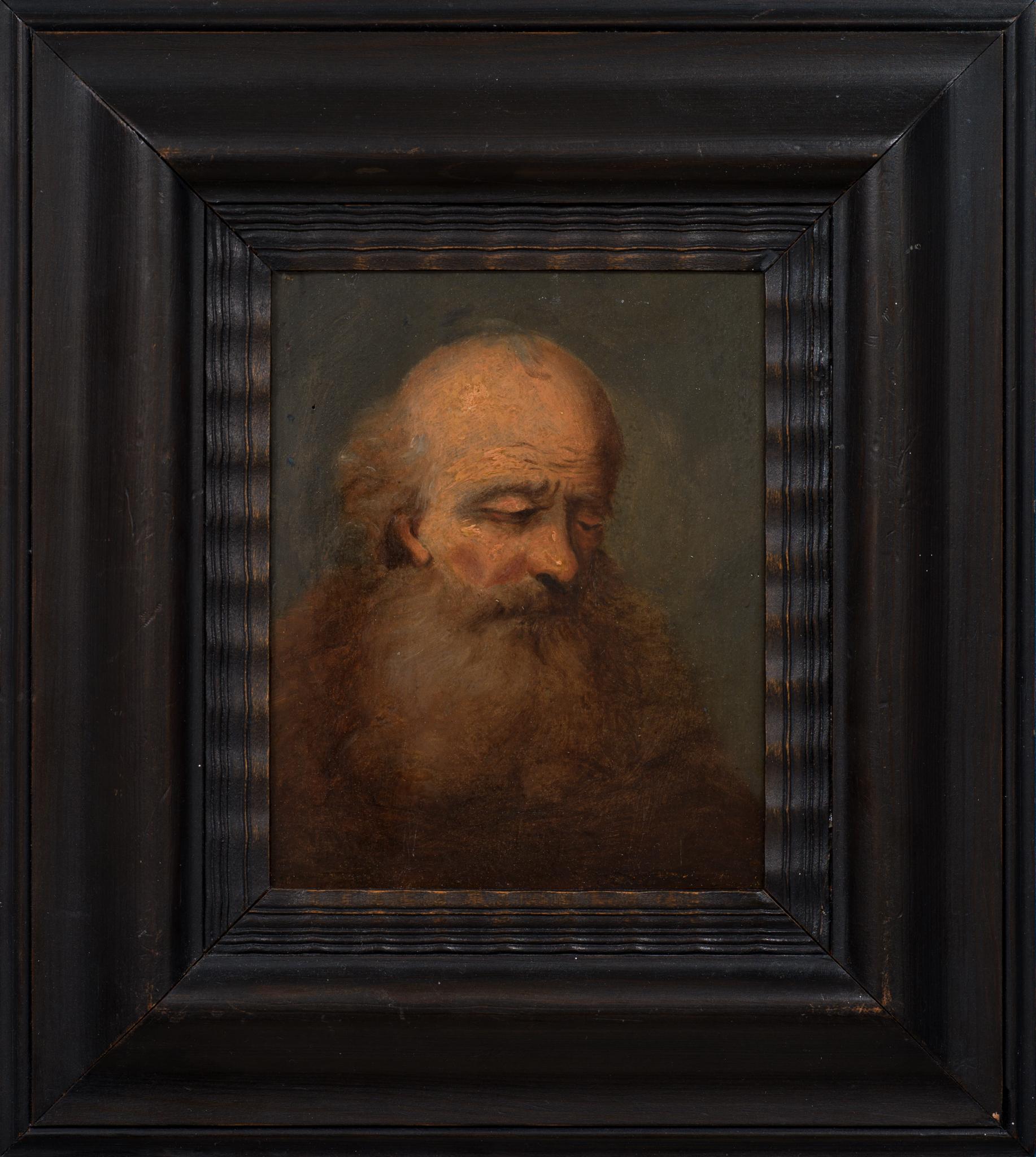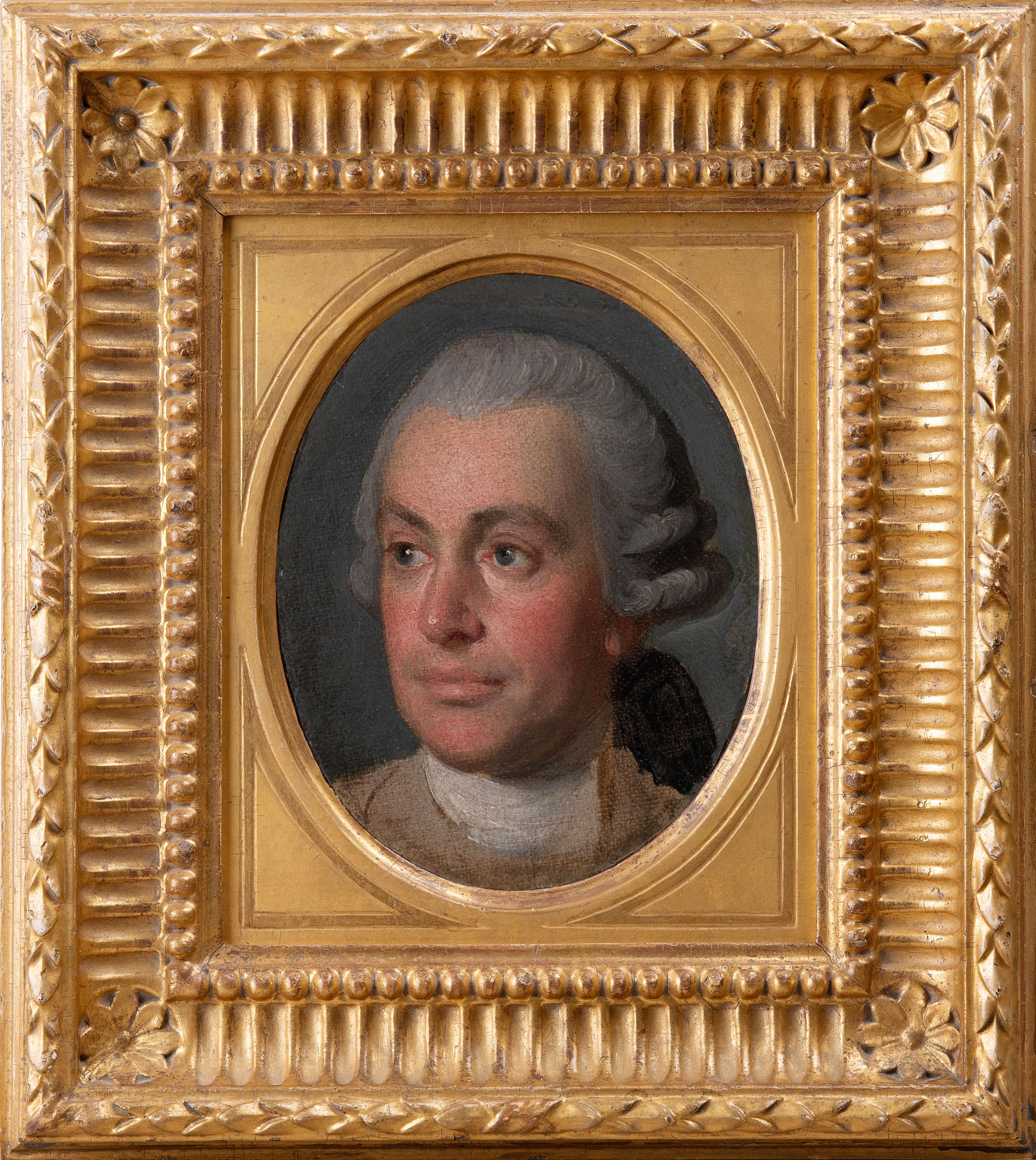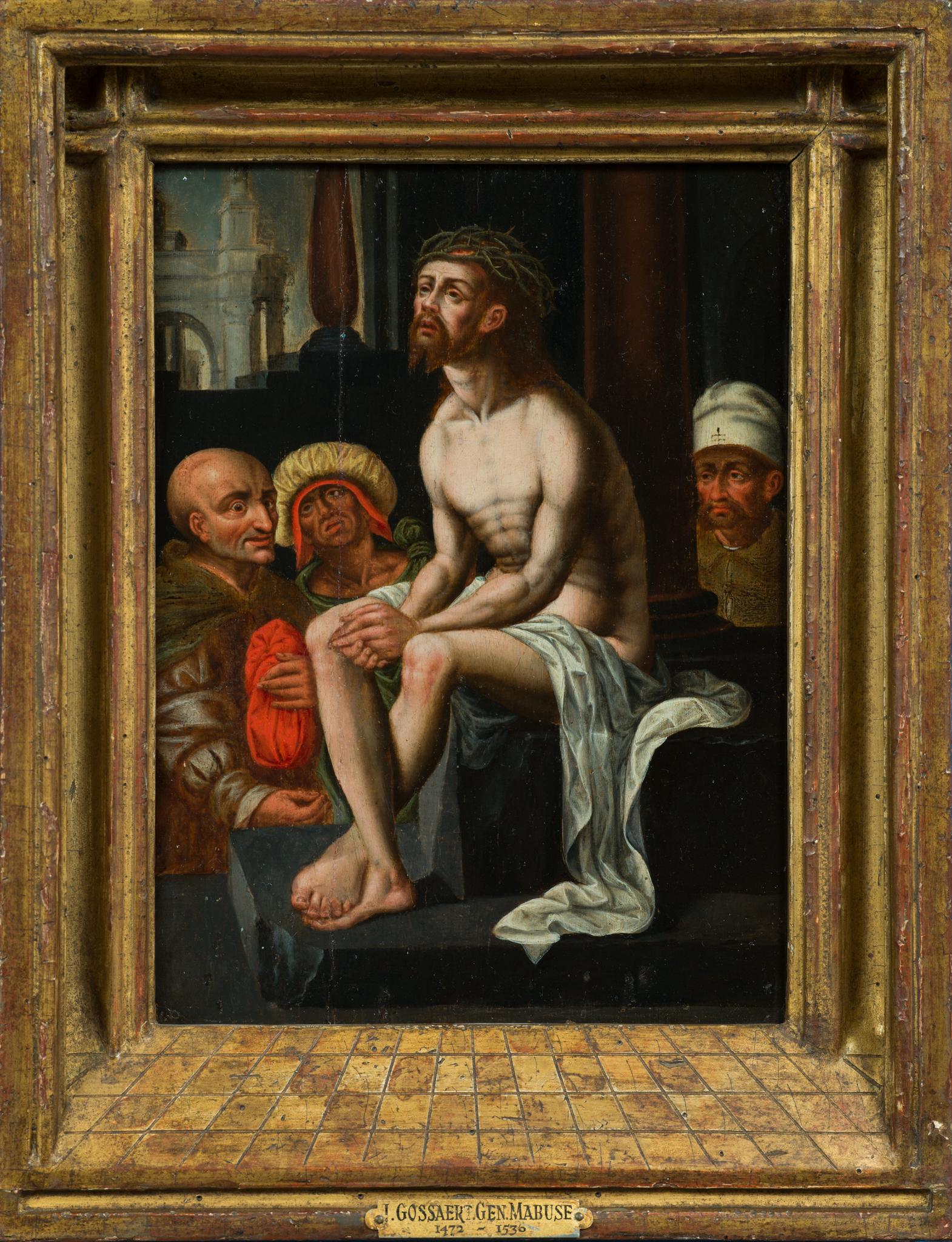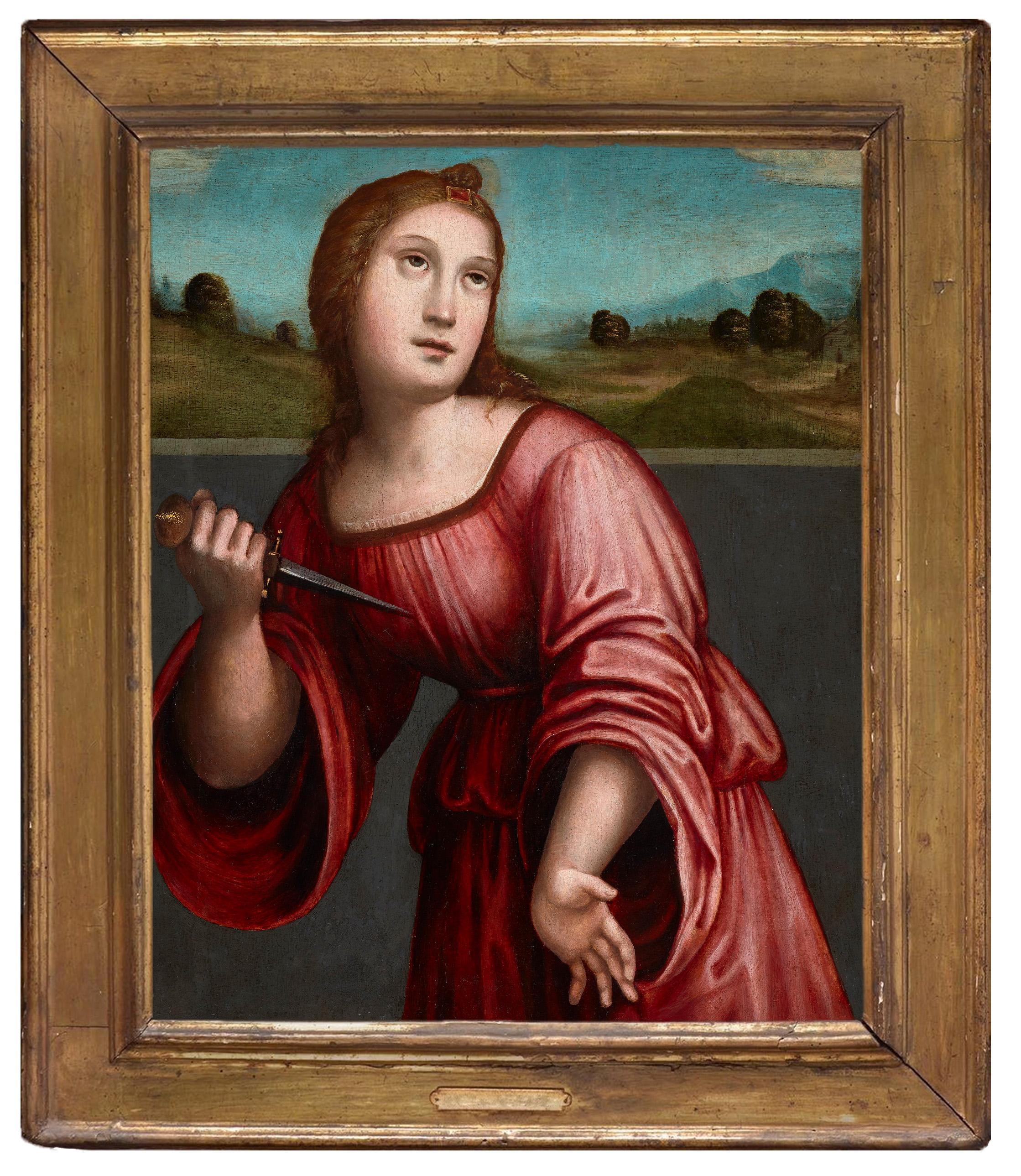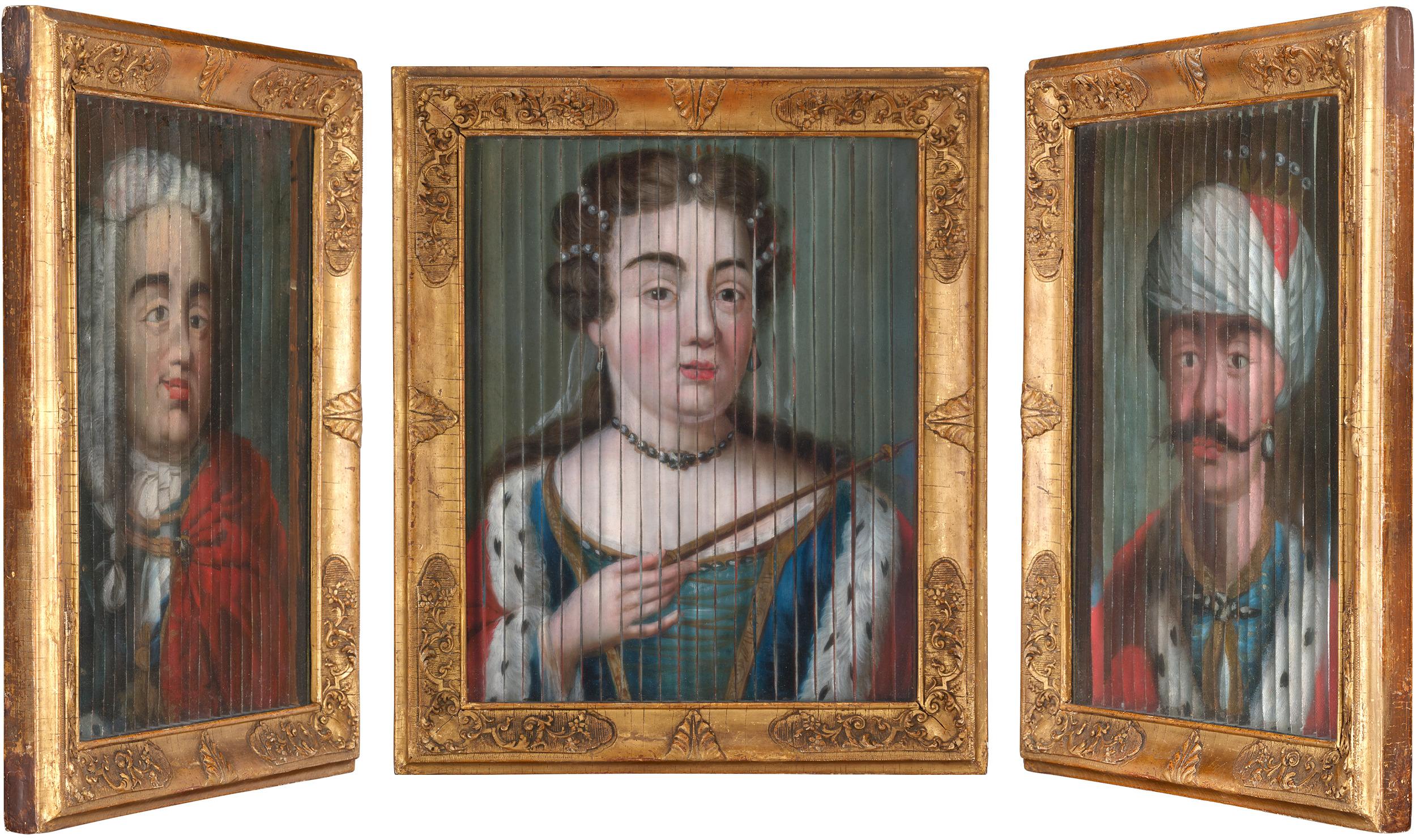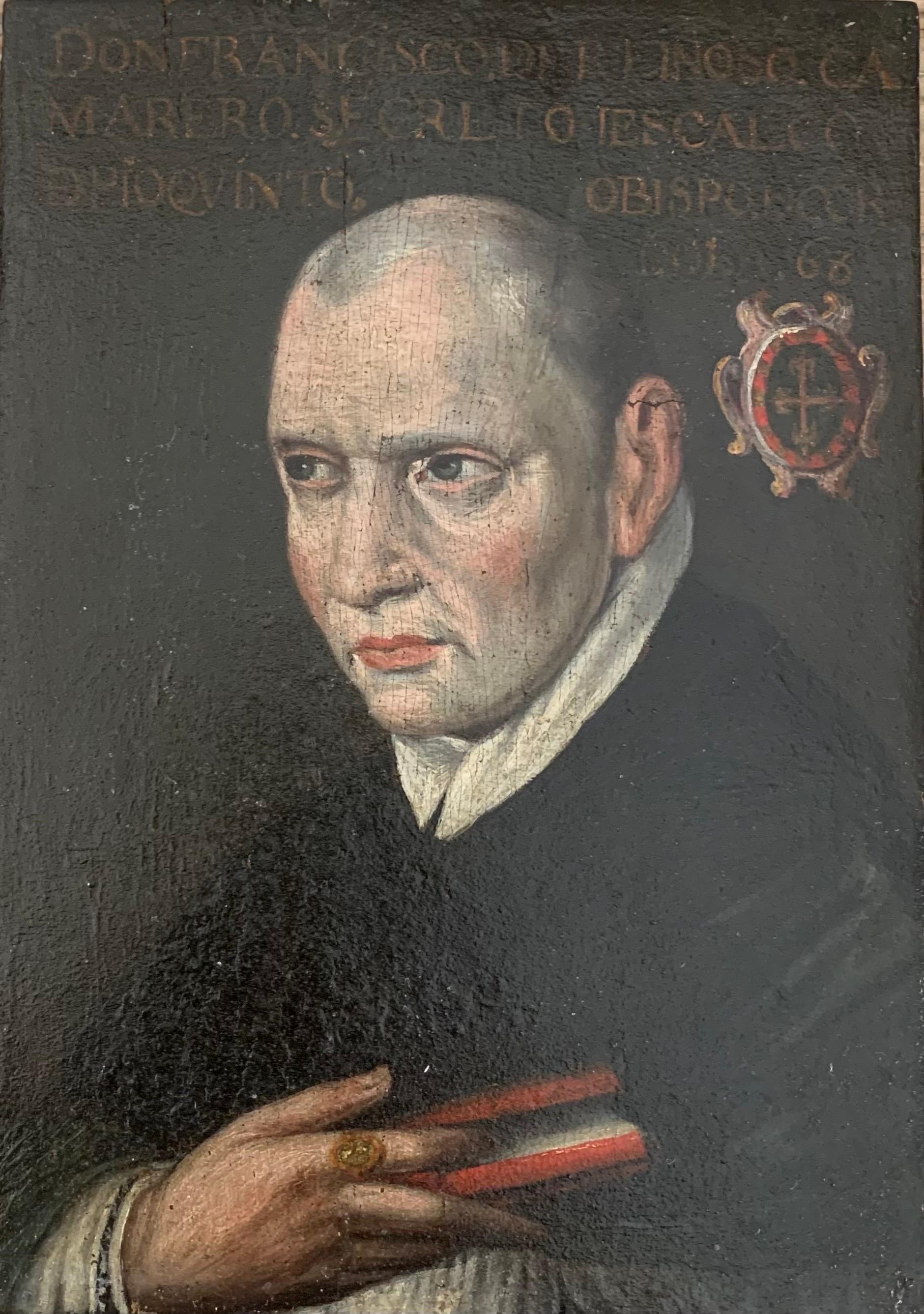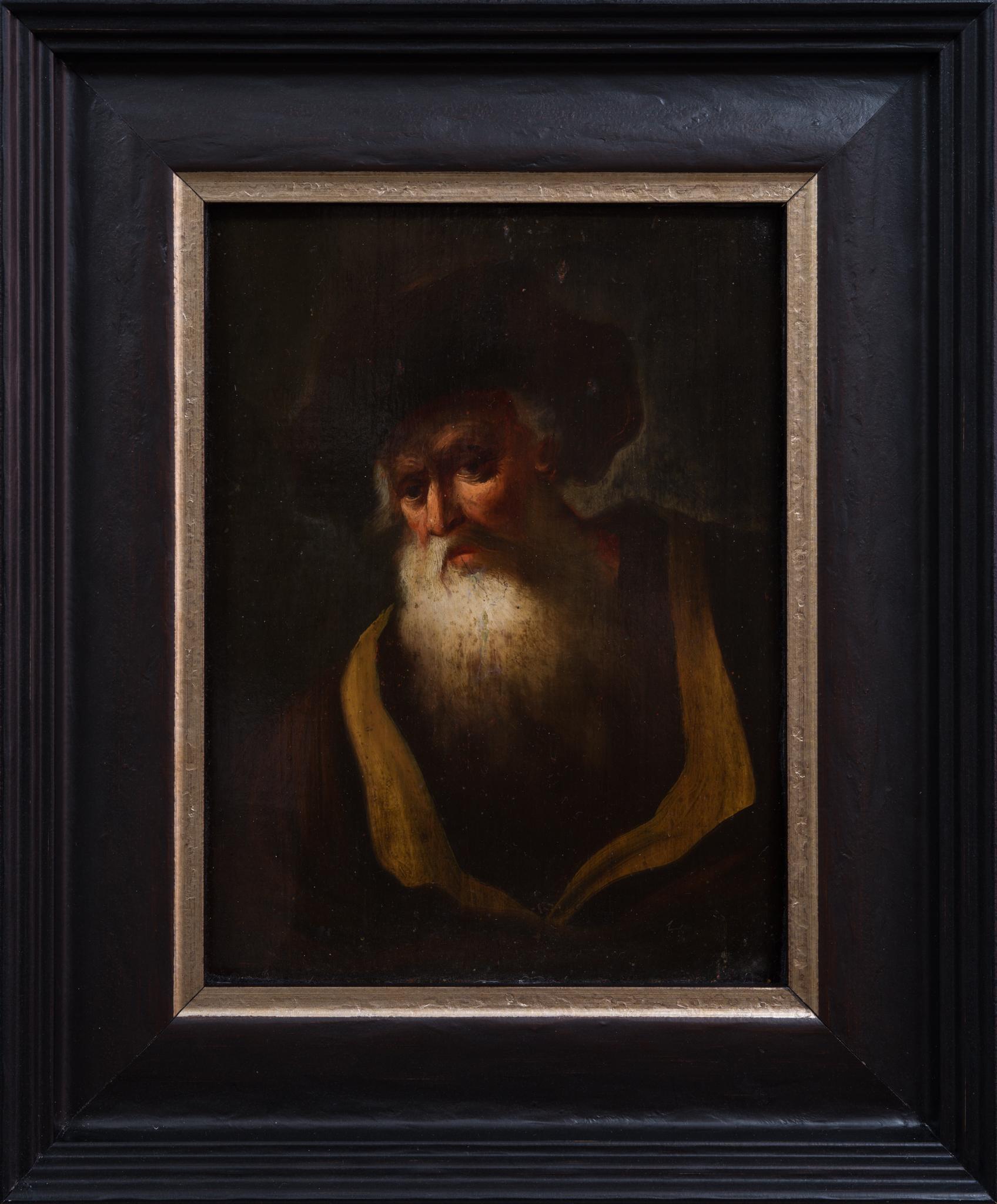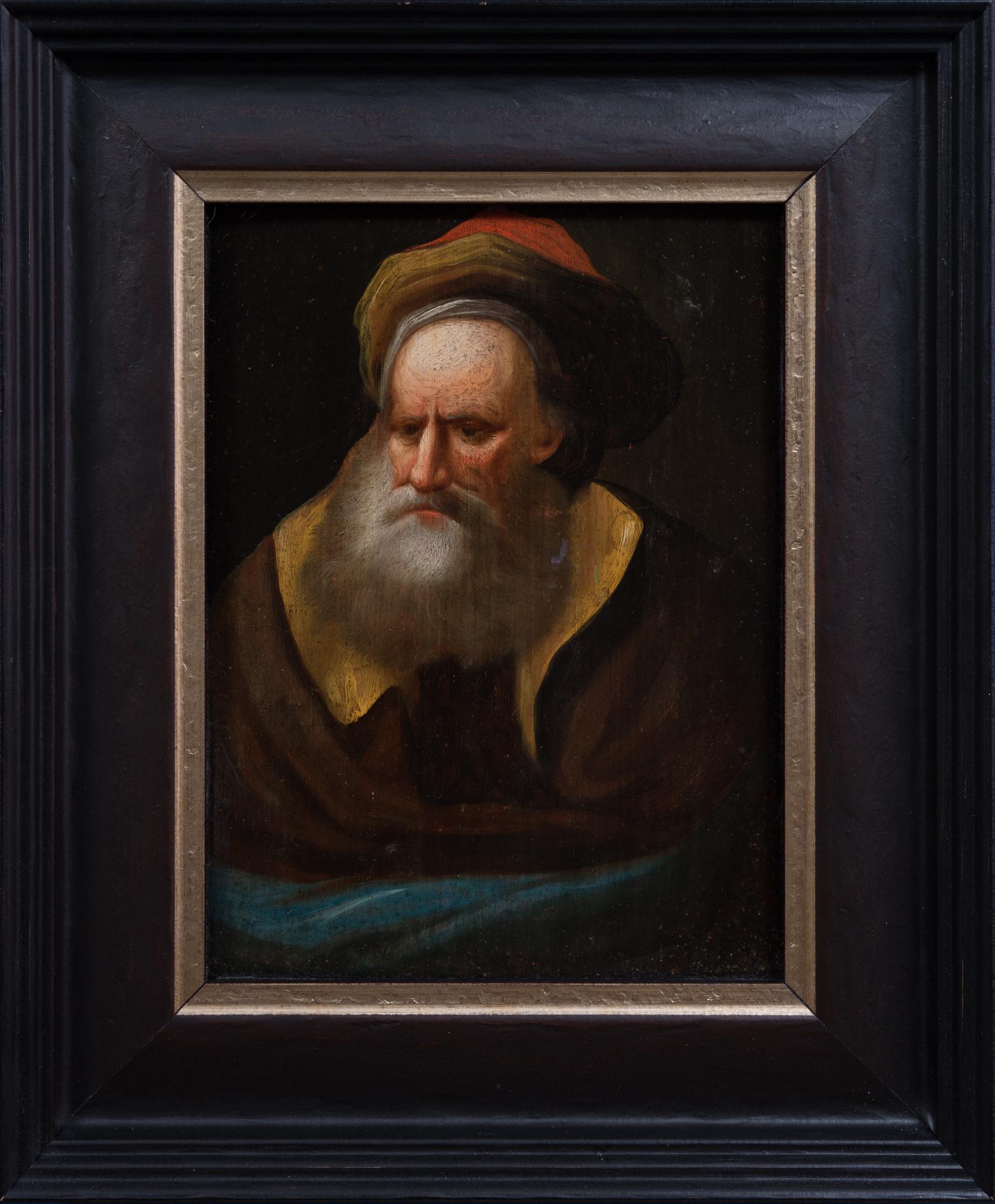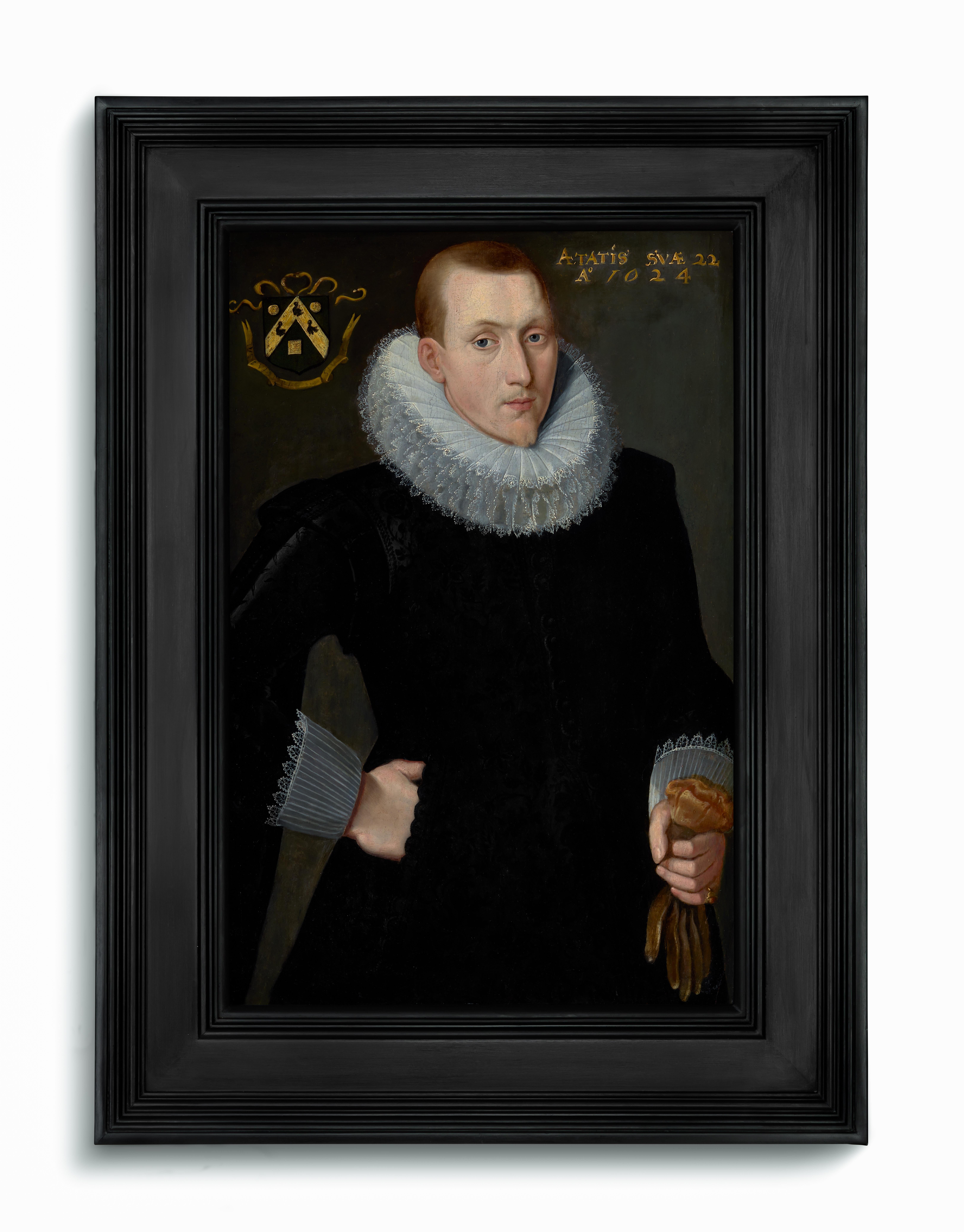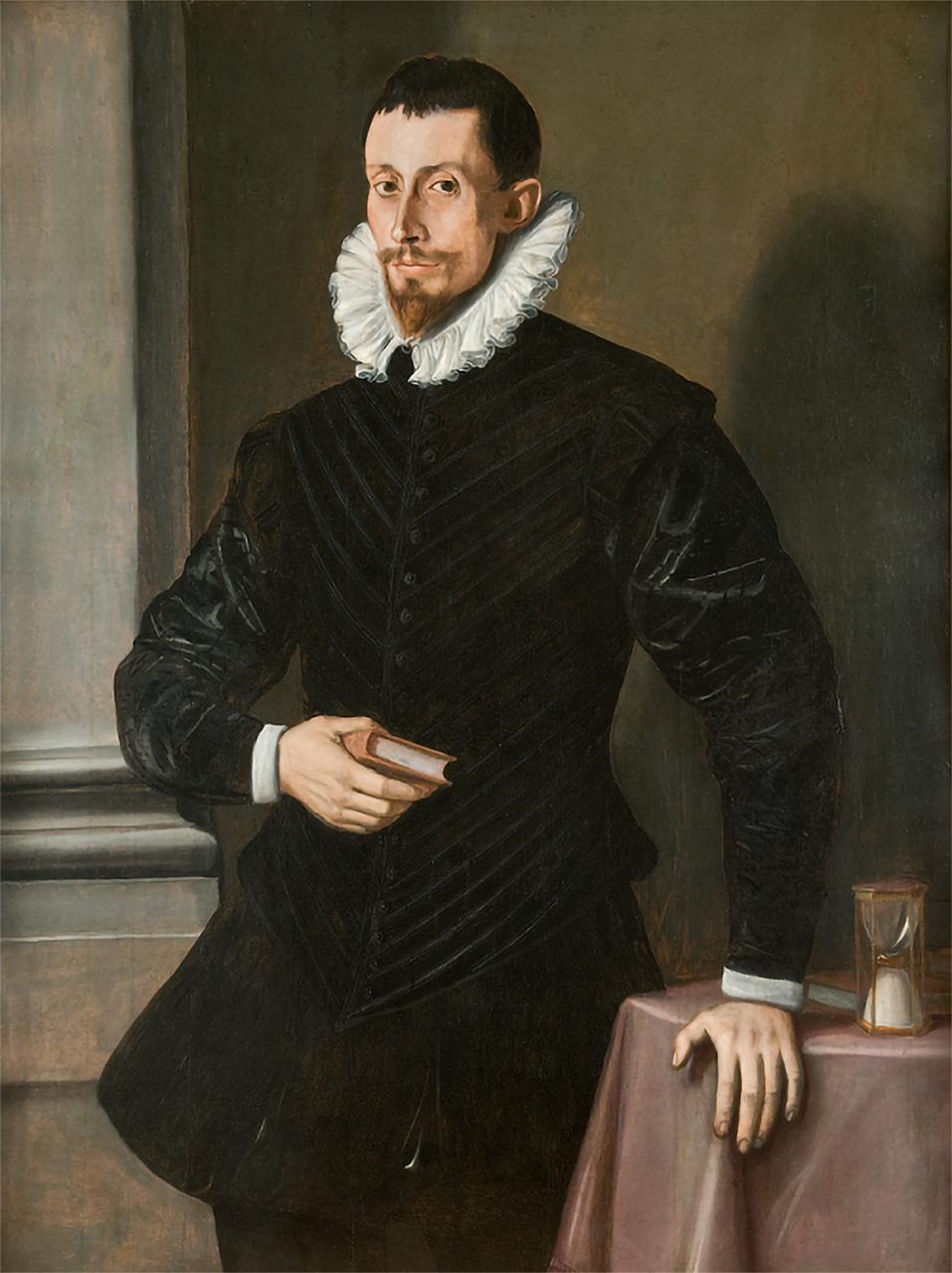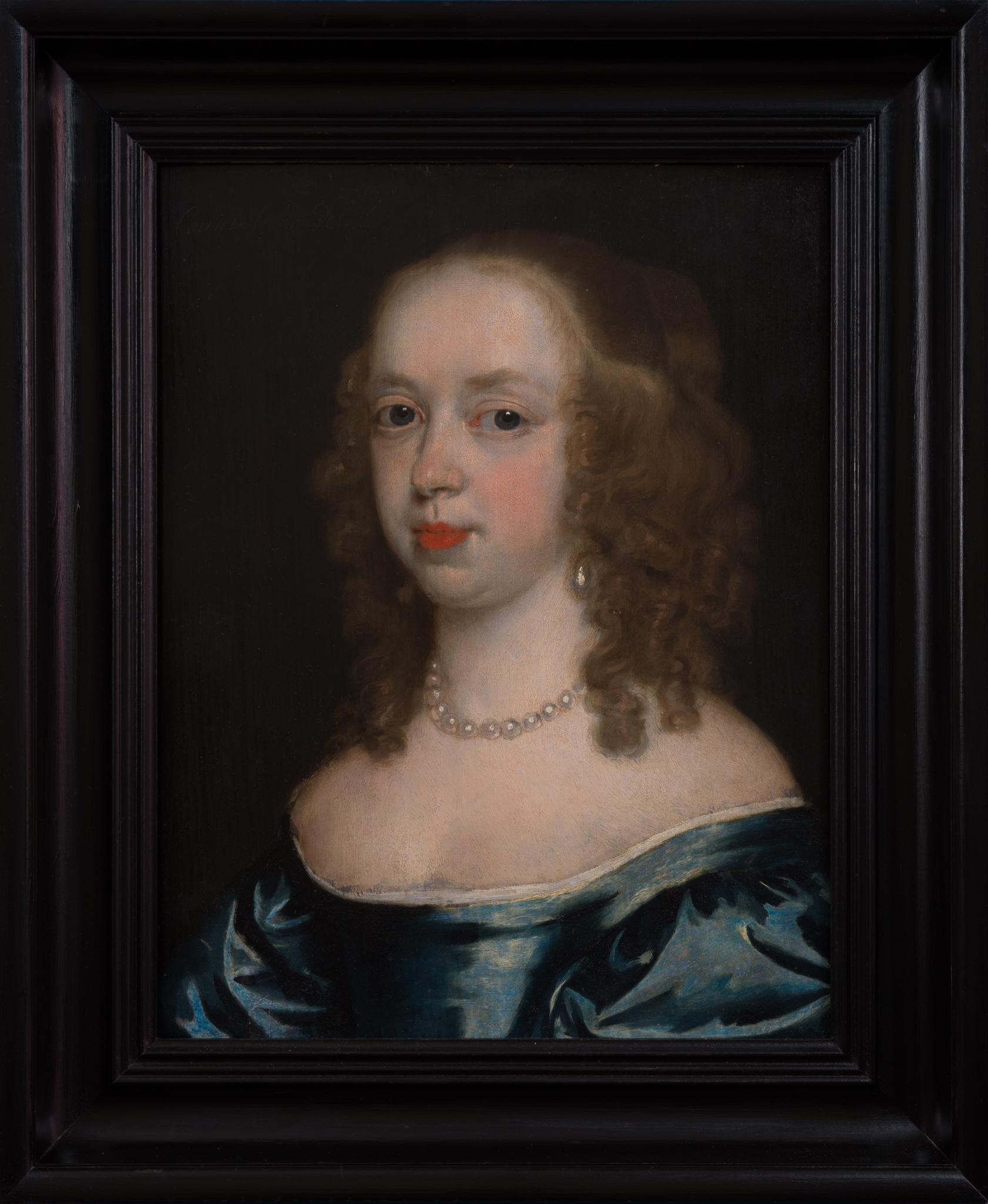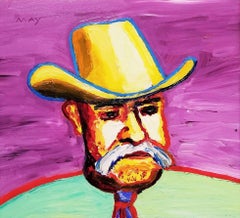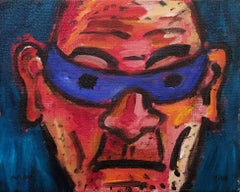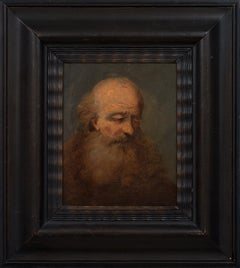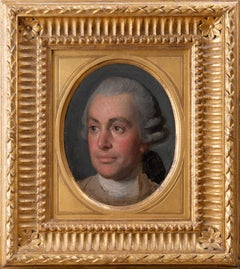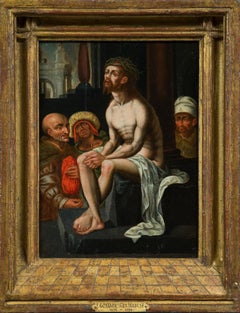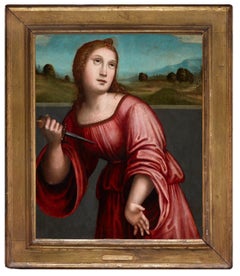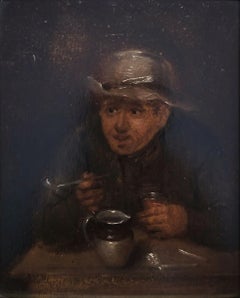
Man in Tavern Smoking a Pipe /// Old Masters Dutch David Teniers Portrait Face
View Similar Items
Want more images or videos?
Request additional images or videos from the seller
1 of 14
Man in Tavern Smoking a Pipe /// Old Masters Dutch David Teniers Portrait FaceCirca: 1690
Circa: 1690
About the Item
- Creation Year:Circa: 1690
- Dimensions:Height: 10 in (25.4 cm)Width: 9 in (22.86 cm)
- Medium:
- Movement & Style:
- Circle Of:David Teniers the Younger (1610 - 1690, Flemish)
- Period:1690-1699
- Condition:(Very Good).
- Gallery Location:Saint Augustine, FL
- Reference Number:1stDibs: LU121210063252
About the Seller
5.0
Platinum Seller
Premium sellers with a 4.7+ rating and 24-hour response times
Established in 1978
1stDibs seller since 2015
1,315 sales on 1stDibs
Authenticity Guarantee
In the unlikely event there’s an issue with an item’s authenticity, contact us within 1 year for a full refund. DetailsMoney-Back Guarantee
If your item is not as described, is damaged in transit, or does not arrive, contact us within 7 days for a full refund. Details24-Hour Cancellation
You have a 24-hour grace period in which to reconsider your purchase, with no questions asked.Vetted Professional Sellers
Our world-class sellers must adhere to strict standards for service and quality, maintaining the integrity of our listings.Price-Match Guarantee
If you find that a seller listed the same item for a lower price elsewhere, we’ll match it.Trusted Global Delivery
Our best-in-class carrier network provides specialized shipping options worldwide, including custom delivery.More From This Seller
View AllCowboy /// Contemporary Pop Portrait Painting Funny Man Sheriff Dan May American
By Dan May
Located in Saint Augustine, FL
Artist: Dan May (American, 1955-)
Title: "Cowboy"
*Signed by May upper right
Circa: 2020
Medium: Original Acrylic Painting on Board
Framing: Framed in a contemporary black moulding
F...
Category
2010s Contemporary Portrait Paintings
Materials
Paint, Acrylic, Wood Panel, Board, Panel
Criminal #23 /// Contemporary Pop Art Painting Jail Prisoner Funny Bandit Figure
By Dan May
Located in Saint Augustine, FL
Artist: Dan May (American, 1955-)
Title: "Criminal #23"
*Signed by May lower left. It is also signed on verso
Year: 2018
Medium: Original Acrylic Painting on C...
Category
2010s Contemporary Portrait Paintings
Materials
Canvas, Paint, Acrylic, Board
Kate Moss Icon IV /// Contemporary Pop Art Fashion Model Portrait Painting UK
By Jack Graves III
Located in Saint Augustine, FL
Artist: Jack Graves III (American, 1988-)
Title: "Kate Moss Icon IV"
Series: Icon
*Signed, titled, and dated by Graves on verso
Year: 2018
Medium: Original Acrylic Painting on Canvas
Canvas size: 48" x 36"
Condition: The stretched canvas was custom built by the artist himself. In mint condition
Shipping: This painting will be shipped canvas...
Category
2010s Contemporary Portrait Paintings
Materials
Canvas, Acrylic
Agnes Sokolowska Icon /// Contemporary Pop Art Fashion Model Portrait Painting
By Jack Graves III
Located in Saint Augustine, FL
Artist: Jack Graves III (American, 1988-)
Title: "Agnes Sokolowska Icon"
Series: Icon
*Signed, titled, and dated by Graves on verso
Year: 2018
Medium: Original Acrylic Painting on Canvas
Canvas size: 48" x 36"
Condition: The stretched canvas was custom built by the artist himself. In mint condition
Shipping: This painting will be shipped canvas...
Category
2010s Contemporary Portrait Paintings
Materials
Canvas, Acrylic
Karlie Kloss Icon III /// Contemporary Pop Street Art Model Fashion Painting
By Jack Graves III
Located in Saint Augustine, FL
Artist: Jack Graves III (American, 1988-)
Title: "Karlie Kloss Icon III"
Series: Icon
*Signed by Graves lower left. It is also signed, titled, and dated ...
Category
2010s Contemporary Portrait Paintings
Materials
Canvas, Paint, Acrylic
Rosie Huntington-Whiteley Icon IV /// Contemporary Pop Art Fashion Model
By Jack Graves III
Located in Saint Augustine, FL
Artist: Jack Graves III (American, 1988-)
Title: "Rosie Huntington-Whiteley Icon IV"
Series: Icon
*Signed by Graves lower right. It is also signed, da...
Category
2010s Contemporary Portrait Paintings
Materials
Canvas, Paint, Acrylic
You May Also Like
Portrait of an Elderly Man
Located in Stockholm, SE
This finely executed oil painting, attributed to the circle of Christian Wilhelm Ernst Dietrich, captures the contemplative expression of an elderly man, his gaze lowered in quiet re...
Category
Early 19th Century Old Masters Portrait Paintings
Materials
Oil, Wood Panel
18th century portrait of the painter Nathaniel Dance
Located in London, GB
Collections:
Robert Gallon (1845-1925);
Private Collection, UK.
Oil on canvas laid down on panel
Framed dimensions: 11.5 x 10 inches
This highly engaging, previously unpublished portrait by Johan...
Category
18th Century Old Masters Portrait Paintings
Materials
Canvas, Oil, Wood Panel
Christ on the Cold Stone – After Jan Gossaert (Mabuse)
Located in Stockholm, SE
This striking devotional image, painted by a follower of Jan Gossaert, represents one of the most influential compositions of the Northern Renaissance: Christ on the Cold Stone, or C...
Category
16th Century Old Masters Figurative Paintings
Materials
Oil, Wood Panel
Lucretia, by Giacomo Raibolini Francia. Detto il Francia. Oil on panel, framed
Located in New York, NY
Giacomo used to paint with his brother Giulio, identifying their works with the monogram «I I». The strong influence of his father, Francesco, is undeniable in all his works, althoug...
Category
16th Century Old Masters Figurative Paintings
Materials
Oil, Wood Panel
Portrait of William Herbert, 3rd Earl of Pembroke, Early 17th Century Portrait
Located in London, GB
English School, (circa 1600)
Portrait of William Herbert, 3rd Earl of Pembroke
Oil on panel, oval
Image size: 29¼ x 23⅞ inches
Painted wooden frame
Provenance:
176, Collection of Francis Greville, 1st Earl of Warwick.
The Trustees of the Lord Brooks’ Settlement, (removed from Warwick Castle).
Sotheby’s, London, 22nd March 1968, lot 81.
Painted onto wooden panel, this portrait shows a dark haired gentleman in profile sporting an open white shirt. On top of this garments is a richly detailed black cloak, decorated with gold thread and lined with a sumptuous crimson lining. With the red silk inside it’s all very expensive and would fall under sumptuary laws – so this is a nobleman of high degree.
It’s melancholic air conforms to the contemporary popularity of this very human condition, evident in fashionable poetry and music of the period. In comparison to our own modern prejudices, melancholy was associated with creativity in this period.
This portrait appeared in the earliest described list of pictures of Warwick castle dating to 1762. Compiled by collector and antiquary Sir William Musgrave ‘taken from the information of Lord & Lady Warwick’ (Add. MSS, 5726 fol. 3) is described;
‘8. Earl of Essex – an original by Zuccharo – seen in profile with black hair. Holding a black robe across his breast with his right hand.’
As tempting as it is to imagine that this is a portrait of Robert Devereux, the 2nd Earl Essex, we might take this with a pinch of salt. Its identification with this romantic and fatal Elizabethan might well have been an attempt to add romance to Warwick Castle’s walls. It doesn’t correspond all that well with Essex’s portraits around 1600 after his return from Cadiz. Notably, this picture was presumably hung not too far away from the castle’s two portraits of Queen Elizabeth I. The first, and undoubtedly the best, being the exquisite coronation portrait that was sold by Lord Brooke in the late 1970s and now hangs in the National Portrait Gallery. The second, described as being ‘a copy from the original at Ld Hydes’, has yet to resurface.
The portrait eventually ended up being hung in the State Bedroom of Warwick Castle.
Archival documents present one other interesting candidate. The Greville family’s earliest inventory of paintings, made in 1630 at their home Brooke House in Holborn, London, describes five portraits of identified figures. All five belonged to the courtier, politician and poet Sir Fulke Greville (1554-1628), 1st Baron Brooke, and were hung in the ‘Gallerie’ of Brooke House behind yellow curtains. One of them was described as being of ‘Lord of Pembrooke’, which is likely to have been William Herbert (1580-1630), 3rd Earl of Pembroke. William was the eldest son of Greville’s best friend’s sister Mary Sidney, and was brought up in the particularly literary and poetically orientated household which his mother had supported. Notably, the 3rd Earl was one of the figures that Shakespeare’s first folio was dedicated to in 1623.
The melancholic air to the portrait corresponds to William’s own pretensions as a learned and poetic figure. The richness of the robe in the painting, sporting golden thread and a spotted black fabric, is indicative of wealth beyond that of a simple poet or actor. The portrait’s dating to around the year 1600 might have coincided with William’s father death and his own rise to the Pembroke Earldom. This period of his life too was imbued with personal sadness, as an illicit affair with a Mary Fitton had resulted in a pregnancy and eventual banishment by Elizabeth I to Wilton after a short spell in Fleet Prison. His illegitimate son died shortly after being born. Despite being a close follower of the Earl of Essex, William had side-stepped supporting Devereux in the fatal uprising against the Queen and eventually regained favour at the court of the next monarch James I.
His linen shirt is edged with a delicate border of lace and his black cloak is lined on the inside with sumptuous scarlet and richly decorated on the outside with gold braid and a pattern of embroidered black spots.
Despite the richness of his clothes, William Herbert has been presented in a dishevelled state of semi-undress, his shirt unlaced far down his chest with the ties lying limply over his hand, indicating that he is in a state of distracted detachment. It has been suggested that the fashion for melancholy was rooted in an increase in self-consciousness and introspective reflection during the late 16th and early 17th centuries.
In contemporary literature melancholy was said to be caused by a plenitude of the melancholy humor, one of the four vital humors, which were thought to regulate the functions of the body. An abundance of the melancholia humor was associated with a heightened creativity and intellectual ability and hence melancholy was linked to the notion of genius, as reflected in the work of the Oxford scholar Robert Burton, who in his work ‘The Anatomy of Melancholy’, described the Malcontent as ‘of all others [the]… most witty, [who] causeth many times divine ravishment, and a kind of enthusiamus… which stirreth them up to be excellent Philosophers, Poets and Prophets.’ (R. Burton, The Anatomy of Melancholy, London, 1621 in R. Strong, ‘Elizabethan Malady: Melancholy in Elizabethan and Jacobean Portraits’, Apollo, LXXIX, 1964).
Melancholy was viewed as a highly fashionable affliction under Elizabeth I, and her successor James I, and a dejected demeanour was adopted by wealthy young men, often presenting themselves as scholars or despondent lovers, as reflected in the portraiture and literature from this period. Although the sitter in this portrait is, as yet, unidentified, it seems probable that he was a nobleman with literary or artistic ambitions, following in the same vain as such famous figures as the aristocratic poet and dramatist, Edward de Vere...
Category
Early 17th Century Old Masters Portrait Paintings
Materials
Oil, Wood Panel
Tri-Directional Portrait Commemorating the Russo-Turkish War
Located in New Orleans, LA
Austrian School
18th Century
Tri-Directional Portrait Commemorating the Russo-Turkish War
Oil on wooden strips
This extraordinary tri-directional portrait exemplifies the rare innovation known as a triscenorama, capturing a pivotal diplomatic moment through ingenious artistic technique. Employing triangularly cut wooden strips, this remarkable work simultaneously depicts three imperial figures central to the Russo-Turkish War of 1735-1739: Empress Anna Ivanovna Romanova of Russia when viewed directly, Holy Roman Emperor Charles VI from the left and Ottoman Sultan Mahmud I from the right, commemorating the Treaty of Nissa that concluded this significant European conflict.
The portrait utilizes an exceptionally rare optical technique that predates modern movable imaging technology. When observed from different angles, the painted triangular wooden strips create a transformative effect, revealing entirely different imperial portraits as the viewer shifts position. The precision required to execute such a work demonstrates remarkable technical mastery, as the artist had to conceptualize three distinct portraits as well as the meticulous arrangement of the panels. This sophisticated manipulation of perspective creates an interactive viewing experience considered revolutionary for its time.
Almost certainly created by an Austrian artist, this diplomatic artwork likely served as a commemorative piece marking the Treaty of Nissa, signed in September 1739. The treaty concluded Russia's ambitious campaign to secure access to the Black Sea while countering Ottoman raids in Ukraine and the Caucasus regions. Given its exceptional quality and historical significance, this portrait was possibly commissioned by Emperor Charles VI himself, potentially serving as a diplomatic gift to either Empress Anna or Sultan Mahmud I during the treaty negotiations.
Under Empress Anna's leadership, Russia sought to counter devastating raids from Ottoman allies, particularly the Crimean Tatars...
Category
18th Century Old Masters Portrait Paintings
Materials
Wood, Oil, Wood Panel
Recently Viewed
View AllMore Ways To Browse
Antique Dutch Genre Painter
Adriaen Brouwer
Antique Dutch Tavern Paintings
Peter Brouwer
Lady Portrait French School
Oil Painting Portrait Ornate Frame
Famous Person Portrait
Queen England Portrait
Portrait Duchess
Portrait Woman Oil Painting 19th Frame
19th C American Portrait
English Lady Portrait
Yves Custom
Portrait Collar Painting
Portrait Of Italian Lady
Painting Oil Earl
19th Century Portrait Lady Oil Paintings
Red Haired Woman Portrait
